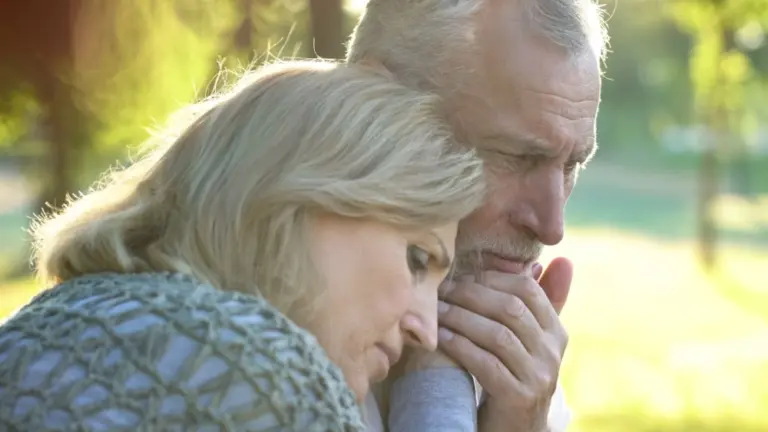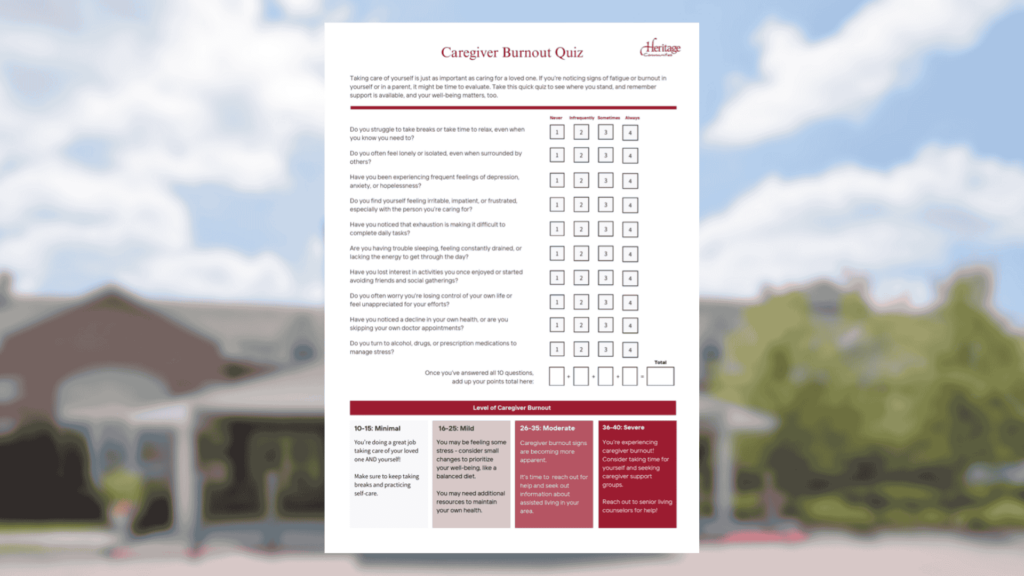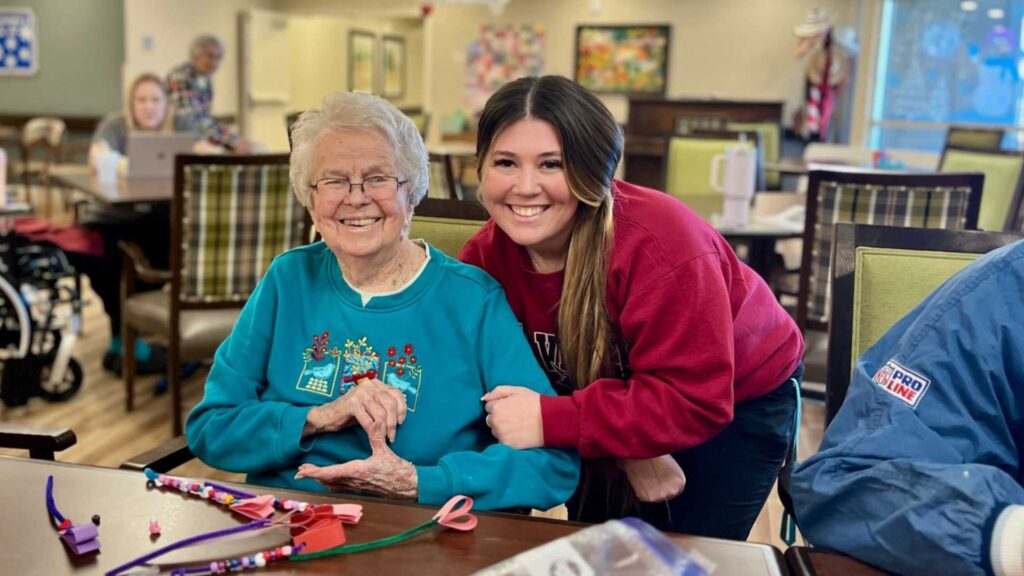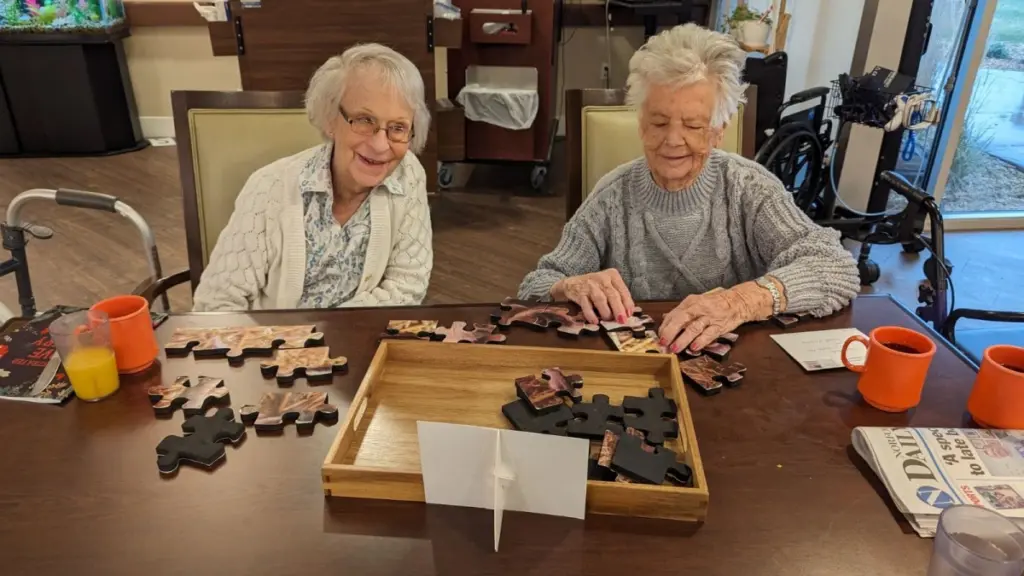Supporting Someone Who Is Grieving: Tips and Emotional Support
Grief. It’s one of the most difficult emotions we experience as humans. While everyone navigates grief differently, offering the right kind of support can make a significant, meaningful difference.

Grief. It’s one of the most difficult emotions we experience as humans. While everyone navigates grief differently, offering the right kind of support can make a significant, meaningful difference. This guide provides practical tips and compassionate advice for supporting someone who is grieving, whether they’re mourning the loss of a spouse or spending time with older adults in a nursing home who have recently lost a friend.
We’ll explore the various aspects of grief and the grieving process, from understanding common emotions to learning what to say and what not to say. By following these tips, you can be more prepared to provide meaningful, emotional, and practical support during these challenging moments.
Understanding Grief
The Grieving Process
Grief is a profoundly personal and natural response to loss, and it can manifest in a multitude of ways. This includes feelings of denial, disbelief, anger, sadness, and even physical symptoms such as fatigue or changes in appetite. There is no universal right way to grieve, as everyone copes with loss differently. The grieving process is unique to each individual and may require considerable time and patience.
“One of most important thing[s] to acknowledge about grief is everyone does it differently. In the vast majority of cases, as long as you’re not harming yourself or someone else, how you’re grieving is normal,” said Taylor Jackson, Home Health Administrator with OnCare Home Health & Hospice.
Common Emotions Experienced
Grieving is a complex and personal experience that involves a multitude of emotions. People can feel a range of emotions, including shock, sadness, anger, guilt, and anxiety, as they come to terms with their loss. These emotions can be intense and unpredictable, fluctuating from day to day, so it’s vital to understand the depth of these feelings to provide meaningful and effective support to those who are grieving.
“Guilt is very normal, especially for individuals whose loved ones are in memory support,” Jackson said. “The grieving process for dementia starts at diagnosis. You start to grieve that person the second they’re diagnosed because you slowly, over time, lose them.”
The Impact of Loss
Loss can profoundly impact an individual’s mental, emotional, and physical well-being, affecting all aspects of their daily routines, relationships, and overall quality of life. “There are physical manifestations of grief. It’s not just emotional,” said Jackson. “You might see appetite changes, you might see cognitive changes.” Knowing these challenges can help you approach the situation with greater compassion and understanding.
Providing Emotional Support
Expressing Compassion and Empathy
Showing compassion and empathy is essential when supporting someone who is grieving. This involves being present, listening actively, and acknowledging their feelings. Simple gestures like a hug or a kind word can go a long way in providing comfort.
What To Say and What Not To Say
Knowing what to say to someone who is grieving can be challenging. Phrases like “I’m so sorry for your loss” or “I can’t imagine how you feel” can be comforting. “It’s okay to talk about the person who has passed,” said Jackson. “It tells that person that you remember them and they impacted your life.”
Avoid saying things like “It’s time to move on,” “Everything happens for a reason,” or “They’re in a better place,” as these can minimize the grieving person’s feelings.
The Importance of Active Listening
Active listening involves paying full attention to the grieving person, acknowledging their feelings, and responding thoughtfully. This can help them feel heard, understood, and connected, which is crucial for the healing process.
Validating Their Emotions
As a supporter, your role in validating the emotions of someone who is grieving is crucial. By acknowledging that their feelings are normal and understandable, you can provide a sense of relief and acceptance.
Practical Ways To Help

Offering Sensible Assistance
Offering to run errands, prepare meals, or help with everyday household chores can provide much-needed relief to someone who is grieving. These practical gestures make their daily life easier and show that you care.
Providing Support Without Overstepping
While offering help is essential, respecting the grieving person’s boundaries is equally crucial. Ask for their permission before acting and listen to their needs and preferences.
Engaging in Comforting Activities
Engaging in activities that the grieving person finds comforting can help lift their spirits. This might include going for a walk, watching a movie, or participating in a hobby they enjoy.
Considering an Emotional Support Pet
Emotional support pets can provide companionship and emotional comfort to those who are grieving. If the individual is open to the idea, a pet can be an excellent source of unconditional love and support.
“Pets can also give somebody purpose when a loved one has passed,” Jackson said. “It gives the grieving person camaraderie and something to work for. It’s not just about them—they have to keep an eye on someone else, too.”
Supporting Compassionately
The Significance of Showing Compassion
Being compassionate involves displaying kindness, patience, and understanding toward others. It requires us to empathize with the grieving person and provide them with non-judgmental support. It’s about being there for them, listening to their feelings, and offering a helping hand without criticism.
How To Show Compassion With Your Actions and Words
Simple actions like sending a thoughtful message, offering a listening ear, or spending time with the grieving person can be powerful. Use words that convey sympathy and understanding, such as “I’m here for you” or “I’m thinking of you.”
Creating a Supportive Environment
Creating a supportive environment involves being present, offering assistance, and providing a safe space for the grieving person to express their feelings. This helps them feel less alone and more supported during difficult times.
Cultivating Empathy
Empathy is the ability to understand and share the feelings of another person. In the context of grief, empathy means recognizing and acknowledging the depth of someone’s pain and offering sincere and meaningful support to help them through their difficult time.
How To Show Empathy
To demonstrate empathy toward someone who is grieving, it’s essential to actively listen to their feelings without interrupting. Offer words of comfort and validation to show that you understand and respect their emotions. Demonstrate your care by being fully present and attentive to their needs without judgment.
The Impact of Empathy on Healing
Empathy, the ability to understand and share another person’s feelings, is pivotal in the healing process. It fosters a deep sense of connection and validation for the grieving individual, allowing them to feel supported and less alone in their journey through grief. This emotional support can significantly alleviate the burden of grief, making the healing process more manageable.

“You never get over a death,” Taylor Jackson said. “You take the death and make it part of your identity. Every time you lose something or someone, you adjust who you are as a person.”
Practical Steps for Assisting
When helping someone who is grieving, it’s essential to approach them with your understanding and patience. Offering practical assistance by taking on daily tasks that may feel overwhelming to them, such as cooking, running errands, or helping with chores, demonstrates how much you care, eases their burdens, and shows them they’re not alone.
Simple actions like sitting quietly with them, holding their hand, or just being present can provide immense comfort. Your consistent presence and willingness to help with practical and emotional needs can significantly affect their healing process.
Being Sensitive to Needs and Preferences
Every individual grieves differently, so it’s essential to be sensitive to their unique needs and preferences. To offer the best support, directly ask them how you can help, including providing specific assistance, like accompanying them to appointments, helping with household tasks, or simply being a listening ear. Respect their wishes and boundaries, even if they prefer not to engage or need time alone. Being flexible and attentive to their cues ensures your support is respectful and meaningful.
Recognizing When Professional Help Is Needed
Sometimes, professional help may be necessary for those who are struggling with grief. If you notice signs of severe depression, anxiety, or difficulty functioning, encourage them to seek support from a mental health professional. At Heritage Communities, we offer grief support and counseling services to help with navigating emotions and finding healing in a compassionate and supportive environment.
Compassionate Support for Grieving Loved Ones With Help From Heritage
Supporting someone who is grieving is a delicate and compassionate act. By understanding the grieving process, providing emotional and practical support, and showing empathy, you can make a meaningful difference in their healing journey. Remember to offer ongoing support and be present for your loved one as they navigate their loss.
Being there for a grieving person can feel challenging and overwhelming, but your support can provide them with the strength and comfort they need to heal. If you’re looking for more resources or personalized guidance, call our team today at Heritage Communities—we’re happy to talk with you. Many of our communities have grief support groups.






